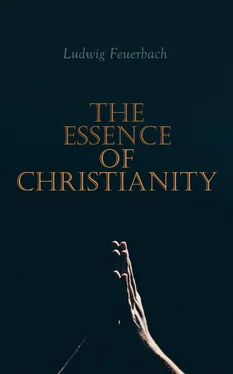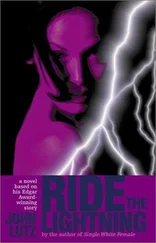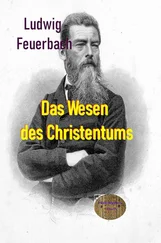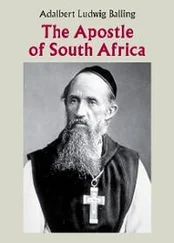The understanding is that which conditionates and co-ordinates all things, that which places all things in reciprocal dependence and connection, because it is itself immediate and unconditioned; it inquires for the cause of all things, because it has its own ground and end in itself. Only that which itself is nothing deduced, nothing derived, can deduce and construct, can regard all besides itself as derived; just as only that which exists for its own sake can view and treat other things as means and instruments. The understanding is thus the original, primitive being. The understanding derives all things from God as the first cause; it finds the world, without an intelligent cause, given over to senseless, aimless chance; that is, it finds only in itself, in its own nature, the efficient and the final cause of the world—the existence of the world is only then clear and comprehensible when it sees the explanation of that existence in the source of all clear and intelligible ideas, i.e. , in itself. The being that works with design towards certain ends, i.e. , with understanding, is alone the being that to the understanding has immediate certitude, self-evidence. Hence that which of itself has no designs, no purpose, must have the cause of its existence in the design of another, and that an intelligent being. And thus the understanding posits its own nature as the causal, first, premundane existence— i.e. , being in rank the first but in time the last, it makes itself the first in time also.
The understanding is to itself the criterion of all reality. That which is opposed to the understanding, that which is self-contradictory, is nothing; that which contradicts reason contradicts God. For example, it is a contradiction of reason to connect with the idea of the highest reality the limitations of definite time and place; and hence reason denies these of God as contradicting his nature. The reason can only believe in a God who is accordant with its own nature, in a God who is not beneath its own dignity, who, on the contrary, is a realisation of its own nature: i.e. , the reason believes only in itself, in the absolute reality of its own nature. The reason is not dependent on God, but God on the reason. Even in the age of miracles and faith in authority, the understanding constitutes itself, at least formally, the criterion of divinity. God is all and can do all, it was said, by virtue of his omnipotence; but nevertheless he is nothing and he can do nothing which contradicts himself, i.e. , reason. Even omnipotence cannot do what is contrary to reason. Thus above the divine omnipotence stands the higher power of reason; above the nature of God the nature of the understanding, as the criterion of that which is to be affirmed and denied of God, the criterion of the positive and negative. Canst thou believe in a God who is an unreasonable and wicked being? No, indeed; but why not? Because it is in contradiction with thy understanding to accept a wicked and unreasonable being as divine. What then dost thou affirm, what is an object to thee, in God? Thy own understanding. God is thy highest idea, the supreme effort of thy understanding, thy highest power of thought. God is the sum of all realities, i.e. , the sum of all affirmations of the understanding. That which I recognise in the understanding as essential I place in God as existent: God is what the understanding thinks as the highest. But in what I perceive to be essential is revealed the nature of my understanding, is shown the power of my thinking faculty.
Thus the understanding is the ens realissimum , the most real being of the old onto-theology. “Fundamentally,” says onto-theology, “we cannot conceive God otherwise than by attributing to him without limit all the real qualities which we find in ourselves.” 2Our positive, essential qualities, our realities, are therefore the realities of God, but in us they exist with, in God without, limits. But what then withdraws the limits from the realities, what does away with the limits? The understanding. What, according to this, is the nature conceived without limits, but the nature of the understanding releasing, abstracting itself from all limits? As thou thinkest God, such is thy thought;—the measure of thy God is the measure of thy understanding. If thou conceivest God as limited, thy understanding is limited; if thou conceivest God as unlimited, thy understanding is unlimited; If, for example, thou conceivest God as a corporeal being, corporeality is the boundary, the limit of thy understanding; thou canst conceive nothing without a body. If, on the contrary, thou deniest corporeality of God, this is a corroboration and proof of the freedom of thy understanding from the limitation of corporeality. In the unlimited divine nature thou representest only thy unlimited understanding. And when thou declarest this unlimited being the ultimate essence, the highest being, thou sayest in reality nothing else than this: the être suprême , the highest being, is the understanding.
The understanding is further the self-subsistent and independent being. That which has no understanding is not self-subsistent, is dependent. A man without understanding is a man without will. He who has no understanding allows himself to be deceived, imposed upon, used as an instrument by others. How shall he whose understanding is the tool of another have an independent will? Only he who thinks is free and independent. It is only by the understanding that man reduces the things around and beneath him to mere means of his own existence. In general, that only is self-subsistent and independent which is an end to itself, an object to itself. That which is an end and object to itself is for that very reason—in so far as it is an object to itself—no longer a means and object for another being. To be without understanding is, in one word, to exist for another,—to be an object: to have understanding is to exist for oneself,—to be a subject. But that which no longer exists for another, but for itself, rejects all dependence on another being. It is true we, as physical beings, depend on the beings external to us, even as to the modifications of thought; but in so far as we think, in the activity of the understanding as such, we are dependent on no other being. Activity of thought is spontaneous activity. “When I think, I am conscious that my ego in me thinks, and not some other thing. I conclude, therefore, that this thinking in me does not inhere in another thing outside of me, but in myself, consequently that I am a substance, i.e. , that I exist by myself, without being a predicate of another being.” 3Although we always need the air, yet as natural philosophers we convert the air from an object of our physical need into an object of the self-sufficing activity of thought, i.e. , into a mere thing for us. In breathing I am the object of the air, the air the subject; but when I make the air an object of thought, of investigation, when I analyse it, I reverse this relation,—I make myself the subject, the air an object. But that which is the object of another being is dependent. Thus the plant is dependent on air and light, that is, it is an object for air, and light, not for itself. It is true that air and light are reciprocally an object for the plant. Physical life in general is nothing else than this perpetual interchange of the objective and subjective relation. We consume the air and are consumed by it; we enjoy and are enjoyed. The understanding alone enjoys all things without being itself enjoyed; it is the self-enjoying, self-sufficing existence—the absolute subject—the subject which cannot be reduced to the object of another being, because it makes all things objects, predicates of itself,—which comprehends all things in itself, because it is itself not a thing, because it is free from all things.
Читать дальше












